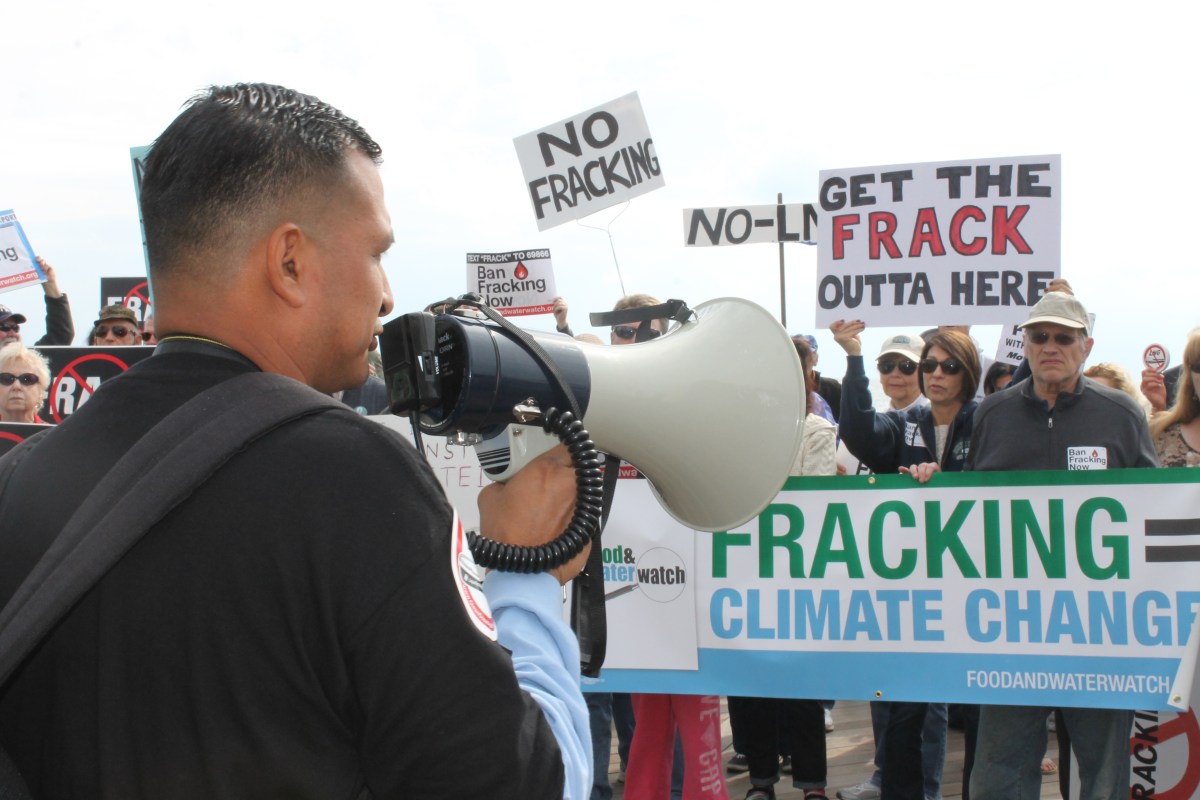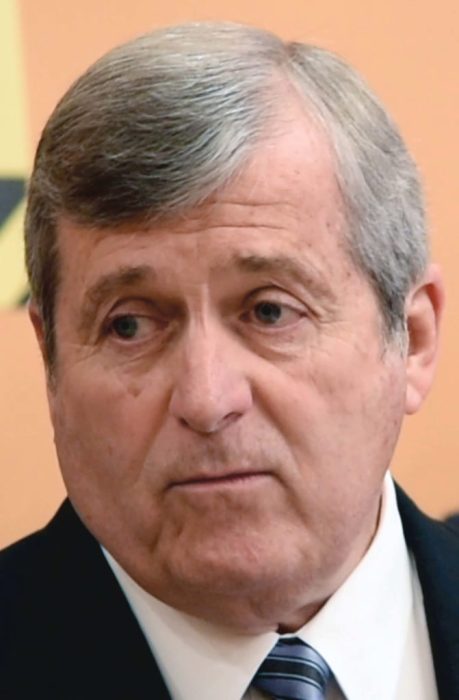By Judy Frankel
Campaigning in Binghamton before the New York primary, presidential candidate U.S. Sen. Bernie Sanders (I-VT) made news last week with his call for a nationwide ban on fracking as he tried to draw a distinction between his position on the issue and that of his Democratic rival, Hillary Clinton, the former Secretary of State and ex-U.S. Senator from New York.
“The toxic chemicals used in fracking are known to cause cancer and birth defects,” said Sanders, referring to the industry’s practice of forcing water mixed with anti-friction and anti-corrosion chemicals into gas wells. “There is simply no good way to contain the cocktail of toxic chemicals pumped into the ground; the threat it poses to our families is too great.”
After putting off his decision for several years of his administration, Gov. Andrew Cuomo finally decided to ban fracking in New York in December 2014. Vermont was the first state to ban the procedure.
Even if Sanders were able to enact a nationwide ban, the Trans Pacific Partnership (TPP), a trade deal currently before Congress, may derail his and others’ best intentions.
The omnibus 30-chapter TPP between the US and Australia, Brunei, Canada, Chile, Japan, Malaysia, Mexico, New Zealand, Peru, Singapore and Vietnam has less to do with trade and more to do with big corporate giveaways. Only six of the 30 chapters deal with so-called “free trade” while undermining US environmental protections such as bans on fracking.
The 600 special interest advisors involved in crafting the text gave themselves the following: an extension of patents on brand name drugs, a framework for creating internet restrictions, the ability to chill “buy local” movements, easier offshoring of jobs, extension of copyright laws, protections against GMO labeling, rollbacks on environmental policies that stop polluters and relief for the “too big to fail” banks, among other things.
Under the Investment chapter, 18,000 corporations that are a party to the agreement will have the ability to sue federal, state and town governments for loss of expected future profits when a regulation, ordinance or law stands in their way. The outcome is decided by three trade attorneys in special tribunals outside US courts and it cannot be appealed. The three lawyers aren’t accountable to any country’s legal system.
The average cost of mounting a defense against these cases is estimated to be $8 million per occurrence.
The Investor State Dispute Settlement process is already in place under NAFTA, but the TPP would expand corporations’ rights beyond what they already enjoy through older trade agreements. Recently, TransCanada filed a $15 billion suit against the US because President Obama rejected the Keystone pipeline. Taxpayers will be on the hook for the settlement if TransCanada prevails.
New York residents who fight for restrictions on fracking may end up with a tab for their resistance if the tribunal rules in favor of gas companies for similar cases under the TPP.
“Tribunals have already ordered governments to pay over $3.5 billion in investor-state cases” and “more than $14.7 billion remain in pending claims under US agreements,” says Lori Wallach of Public Citizen’s Trade Watch.
The TPP and its sister agreement with the European Union called the Transatlantic Trade and Investment Partnership (TTIP) would give 44,000 corporations access to suing our government.
Obama has already signed the TPP, leaving it to the U.S. House of Representatives and U.S. Senate for a final one-time-only vote. The majority of Congress has agreed to use a process called “Fast Track Trade Promotion Authority,” whereby they may put it to a vote at any time, without deliberation or comments on the floor of the House.
The size of the agreement begs the question: How many of our elected representatives will actually read the darn thing before they vote “yea” or “nay”?
Sanders has consistently opposed the TPP, while Clinton has said that it’s the “gold standard of trade deals” and on 45 separate occasions has publicly endorsed it. To stay in the race with primary voters who hate the TPP, she has flip-flopped on this issue. But with Clinton’s campaign contributions coming from banks that stand to benefit from the TPP, it’s questionable whether she could make everyone happy with her position.
But at least she’s been held to account. The remaining Republican candidates are divided on it.
“It is a deal that is going to lead to nothing but trouble,” Donald Trump has said about the TPP. “It’s a deal that’s designed for China to come in, as they always do, through the back door and totally take advantage of everyone.”
China is not one of the signatory countries of the TPP, but Trump is right that it and other non-members are able to reap the benefits of the deal without having to abide by its terms.
U.S. Sen. Ted Cruz (R-Texas) says he is against the TPP, but initially he said he thought it would bring millions of customers to American businesses. Republican Ohio Gov. John Kasich supports the TPP, calling it “free, fair trade.”
Most Republicans in Congress are pro-TPP, reportedly eager to give the 600 special interest groups what they seek. But they may wait until after Nov. 8 to hold a vote on the unpopular trade deal to avoid angering voters and losing control of Congress in the general election. But with corporations using their resources to fund campaigns thanks to Citizens United, the special interests may get their wishes fulfilled well before Christmas.
What New York and other states will be able to do about fracking, to name one key environmental issue, may rendered moot.
Judy Frankel is a political activist, blogger for The Huffington Post, and author who is leading the movement to fix Washington. Her book “In Search of The Next POTUS: One Woman’s Quest to Fix Washington, A True Story“ gives voters the tools to combat corruption in Congress while choosing a qualified leader for the White House.































